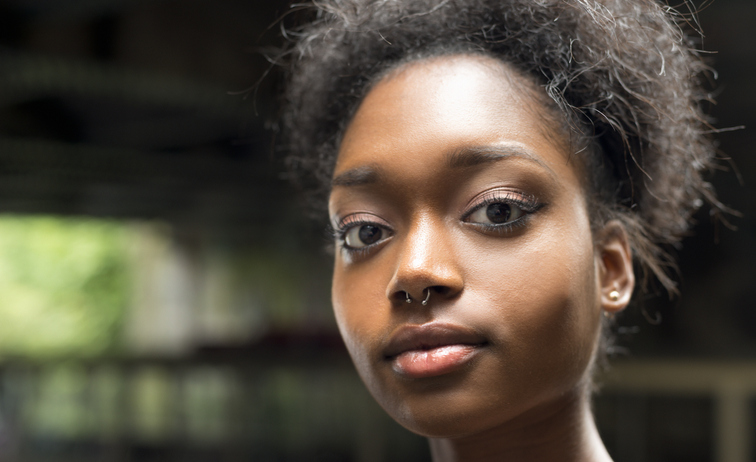
Source: pidjoe / Getty
If we’re going to seriously address the issue of Black women and alcohol abuse, the work begins in middle school. According to the National Institute on Alchohol Abuse and Alcoholism, research shows that, on average, teens are taking their first drink as early as 14 years of age and people who reported drinking before age 15 were four times more likely to experience alcohol dependency. But if you ask Dr. Ijeoma Opara, Assistant Professor of Social Work at SUNY Stonybrook University’s School of Social Welfare, effectively reaching Black girls is going to take much more than a school assembly on teen drinking and peer pressure.
“It’s important that alcohol use and abuse be addressed in adolescent years. If we want to address the needs of Black women, we need to target teenagers because adolescent years are when they start,” Dr. Opara explained.
Instead of simply talking at Black teens about why underage drinking is bad, we should explore the risk factors associated with alcohol abuse and address them early on. Some of the major factors connected to substance abuse are racial identity and cultural pride.
“One of the things I’ve noticed in my research on alcohol use prevention in adolescent girls is that ethnic identity and social support are actually big protector factors against using alcohol and abusing alcohol,” said Dr. Opara. “Ethnic identity explores cultural pride and how good you feel about your race. How you feel about your race is tied directly to self-esteem and self-worth.”
As it turns out, having a greater sense of racial identity makes a person less likely to indulge in risky behaviors like excessive drinking.
“The older you get and the stronger your ethnic identity and racial identity get, the less likely you are to engage in dangerous behaviors such as drinking excessively, abusing drugs, and engaging in sexually risky behaviors,” said Dr. Opara.
In addition to building cultural pride, parents, schools, and community organizations can partner to teach girls effective strategies for dealing with stress and frustration.
“Alcohol abuse is so normalized in comparison to other substances we have access to. It’s a socially acceptable use of a substance,” Dr. Opara explained.
Oftentimes, teens witness relatives and people within their communities use alcohol as a means of coping with life and as a result, they adopt similar behaviors.
As Dr. Opara previously explained to us: “The problem with Black women who may be engaging in heavy alcohol use is that they’re using it as a coping mechanism and they don’t know any other coping mechanisms that can make them feel better in the moment. We’re not addressing how to engage in healthy coping mechanisms as teenagers and those unhealthy habits end up getting passed on to adulthood.”
Some healthy coping strategies Black women and girls can engage in include:
- Exercise
- Meditation
- Journaling
- Music
- Therapy
- Personal hobbies
If you or another young girl you know is struggling with alcohol abuse, you can contact the Substance Abuse And Mental Health services Administration at 800-662-HELP (4357).









